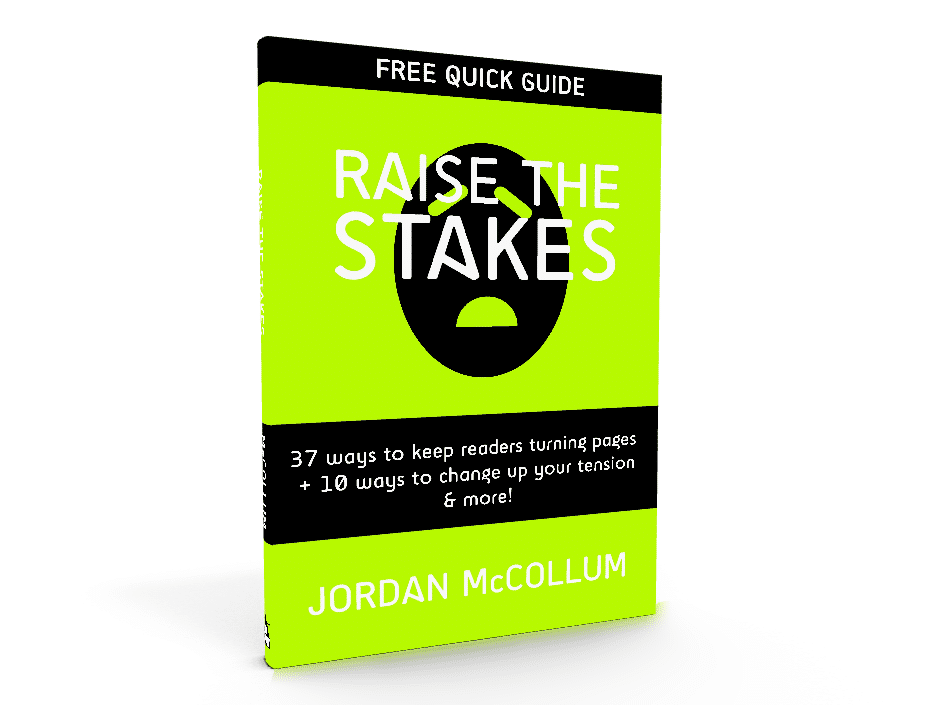The biggest difference between a subplot and a main plot is that whole “sub” thing. How can we make sure our subplots don’t overtake the main plot? A fine sense of balance and a lot of analysis.

Identifying your main plot
This might seem obvious, but if you’re struggling to balance your subplots and your main plot, maybe your main plot . . . isn’t.

- Describe your book in 20 words or less—one, maybe two sentences. (Check out edittorrent for some help writing a logline)
- Think about where your book would go on the shelves. What’s it next to? What genre does it fall into?
- Look at your character’s arc. What plot line most affects (or effects!) your character’s internal growth?
- Examine the opening. What problem is presented first? What’s biggest? What has the highest stakes?
- Examine the turning points. What changes at Plot Point I, the Midpoint and Plot Point II?
- Examine the climax. What problem is resolved last? What problem forms the crux of the whole book?
- Ask your antagonist. Who or what is the strongest external force working against your character?
Naturally, several subplots will be intertwined with each of these elements. But if you’re writing a mystery, for instance, and all your turning points are set pieces for the adventure plot, maybe those mystery elements are actually a subplot, and we need to adjust the beginning and end (and character arc) to reflect the main plot better.
If you find your manuscript still to be indefinable, perhaps it needs to be more focused in general.
Analyze the subplot
Once you’ve identified the main plot, take a look at the subplot(s) that’s competing for your readers’ attention. A few things we want to determine about the subplot:
- What type of subplot is it? Mirroring, contrasting, complicating?
- If it doesn’t fall into one of those types, how does it intersect with the main plot? How does it change the main character’s trajectory?
- What characters are involved in this subplot? Only secondary characters? All main characters?
- How much page time does the subplot occupy? You don’t have to analyze quite to the level that Livia Blackburne analyzed the use of backstory in published novels, but at least on a scene level, go through each scene of the story and figure out not only how long the scene is, but whether it pertains more to the main plot or the subplot. Total it up. What percentage of the story deals with the main plot? Each subplot?
Again, if one of our subplots far outweighs the others, or even the main plot, it might be a good idea to figure out if perhaps the “main” plot . . . isn’t.
Otherwise, if things are out of whack, it’s probably time to work on that balance.
Striving for balance
Aside from making sure the main plot reigns supreme, there aren’t any hard and fast rules about how much subplot is too much. As always, your intuition and feedback from impartial readers are both invaluable.
Of course, that’s not a super helpful answer, is it? A few good guidelines to fall back on:
- If you’re worried about it, it might be an issue.
- If more than one reader (or one very astute reader whose judgment you trust) picks up on it, it might be an issue.
- If you enjoy writing the subplot more than the main plot—trim it or switch it!
- If your characters are more engaged by the subplot—trim it or switch it!
- If the subplot deals primarily with secondary characters, and affects very little of the main plot or the main characters, those secondaries may be trying to upstage your story. Reel them in!
- If your subplot doesn’t “go” anywhere—the characters don’t grow, it doesn’t affect the main plot or dramatically change the main characters’ trajectories—it might need to go (More about that another time)
In trimming a subplot, you don’t have to cut it entirely. Readers are usually pretty astute, and can infer a lot without being shown everything. Try to stick with the most important events from the subplot to make it work. These are the events that trace the outline of the subplot, and the events that affect the main plot the most.
When you switch a subplot to a main plot, naturally you have to trim back the old main plot to make room. You’ll also probably need to expand the subplot—but most of all, you’ll need to make sure that all the key turning points of the story involve the new main plot, especially the character’s emotional turning points.
A word about romantic elements
Romantic subplots are very popular. But how can you tell if you’re writing a book with romantic elements, or an adventure romance, or a romance with adventure elements?
First and foremost, if the relationship does not end with a happily-ever-after (or at least a happily-ever-right-now), you’re looking at a book with romantic elements. It’s the codified definition of a “romance” from Romance Writers of America. Period.
If the romance plots and the adventure plots are nearly equal—in page time, in effect on the characters, in turning points, in beginnings and endings—adventure romance is a safe bet.
If the romance plot takes far more page time, or if it affects the characters’ journeys far more than the adventure plot, then it’s probably a romance with adventure elements. Most likely, you’ll want to stick to publishers in the romance arena—but be careful that your adventure elements aren’t too buried in the romance story, or you run the risk of disappointing your readers.
Subplots make your story richer—as long as they don’t take over the whole thing! Balancing your subplots helps to keep your story on course.
What do you think? How do you make sure your subplots are balanced against the main plot? Come share!
Photo credits: submarine—Pacific Northwest National Laboratory; bookshelf—Josh; balance—winnifredxoxo


